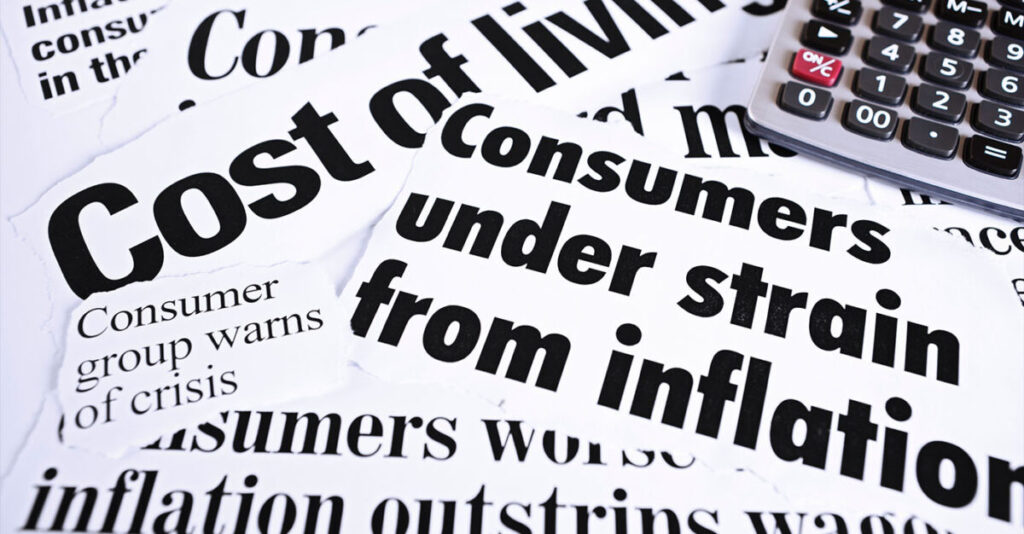By Stacy M. Brown
NNPA Senior National
Correspondent
Prices across the United States are about 26% higher than before the COVID-19 pandemic, pushing everything from a weekend hotel stay to a simple cup of coffee out of reach for many families. A budget hotel room in Nashville can now cost $500 for the weekend—without breakfast—and a single cup of coffee can cost $7. Rental cars are also commanding premium rates, with four days in a midsize Toyota Camry easily topping $670.
It’s so bad in America that a foreign news organization dug into the pricey details. The Times of London reported that inflation, which began accelerating in 2021, has left American consumers grappling with the most persistent cost increases in decades. According to NerdWallet data cited in the report, the impact has been felt across every income bracket, fueling a growing sense that even basic experiences are becoming unaffordable.
Travel and Lodging: Soaring Costs
Hotel rates have climbed 24% over the past decade, The Times reported. In Manhattan, the average nightly rate hit a record $417 in September 2024, according to real estate analytics firm CoStar. Miami Beach hotels averaged $283 a night last year, up from $230 in 2019, while Las Vegas rooms rose to $198, up nearly 41% over the same period. Rental car prices surged early in the pandemic and remain high. While rates stabilized over the past year, costs have increased 29% since 2015.

Airfares are technically down 18.5% compared to 2015, but The Times noted that this decline reflects airlines’ “unbundling” services to show lower headline fares while tacking on fees. Southwest Airlines, for example, ended its “bags fly free” policy and now charges $35 for the first checked bag and $45 for the second.
Dining and Groceries: Everyday Pain Points
Eating out has become markedly more expensive, with restaurant prices up 49.3% in the last ten years. Fast food chains have been forced to raise prices due to wage increases, higher energy costs, and supply chain problems. A dozen large Grade A eggs averaged $6.23 in March before dipping to $4.55 by May, according to the Bureau of Labor Statistics. The Waffle House restaurant chain temporarily imposed a 50-cent surcharge per egg. Grocery essentials have spiked in price, The Times reported. Baby wipes that cost $4.99 four years ago now average $6.63, while a unit of dog food jumped from $5.78 to $8.42, according to NielsenIQ.
Lindsay Owens, executive director of the Groundwork Collaborative, said some companies have exploited the situation for profit. “They decided to see if they could pass along all of their rising costs so that their margins wouldn’t be eaten into,” Owens told The Times. “And when they realized that they could, they decided to go for more.”
Entertainment and Theme Parks: A Luxury for the Wealthy
The price of live entertainment has soared. NerdWallet figures show concert and theater tickets are up 39% since 2015. The most recent Broadway season was the priciest on record, averaging $129 per ticket, and top shows often exceed $1,000 a seat. Dolly Parton’s December Las Vegas shows sold out in minutes, with resale prices climbing to $1,600. At Disney parks, costs have risen steeply. A four-day Walt Disney World trip for a family of four, including a Disney hotel, cost $4,266 last year, more than $1,000 from five years earlier, The Wall Street Journal reported.
What Comes Next
While inflation has retreated from its 9% peak in 2022, The Times cautioned that Americans shouldn’t expect relief anytime soon. New tariffs introduced by the Trump administration are expected to drive prices even higher in the months ahead. With costs still climbing, many households are left with tough decisions about which necessities—and experiences—they can continue to afford. “We’re often seeing the highest demand in the luxury space,” Sally French, a NerdWallet finance expert, said. “People want the hotel that’s going to make for an amazing photo… People are spending more on higher-end things they wouldn’t have done in the past.”




